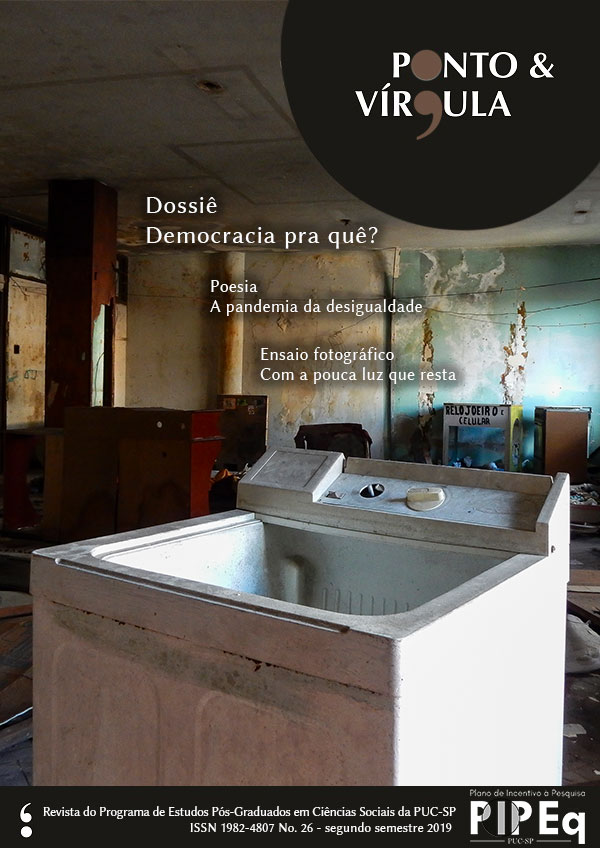The political transition in Brazil: from opening to the Constituent Assembly (1974-1988)
DOI:
https://doi.org/10.23925/1982-4807.2019i26p4-15Keywords:
Dictatorship, Democracy, Armed forces, ConstitutionAbstract
The military-business dictatorship of the period 1964-1985 represented a huge political, legal and institutional setback in Brazil. Repression was the instrument defended by all fractions of the Brazilian bourgeoisie (bankers, landowners, industrialists, merchants, media barons, etc.) as a condition to stifle popular mobilization and prevent the structural reforms advocated by former President Goulart and the progressive sectors of society. In the early 1980s, there was a process of liberalization of the regime, carried out “from the top” (under the tutelage of the Armed Forces), which consisted of loosening authoritarian controls, but without major changes in power relations between social classes. The popular, democratic and progressive sectors of society mobilized in the “Battle of the Constituent” in the attempt of removing all the authoritarian rubble that was still in force, but the strong reaction of the conservative sectors contributed to preserve many of their historical privileges in the new legal order. This article aims to identify the anti-democratic aspects of the 1988 Constitution.Downloads
Published
2020-12-20
How to Cite
Arruda, P. F. (2020). The political transition in Brazil: from opening to the Constituent Assembly (1974-1988). Ponto-e-Vírgula, (26), 4–15. https://doi.org/10.23925/1982-4807.2019i26p4-15
Issue
Section
Dossiê Democracia para quê?






